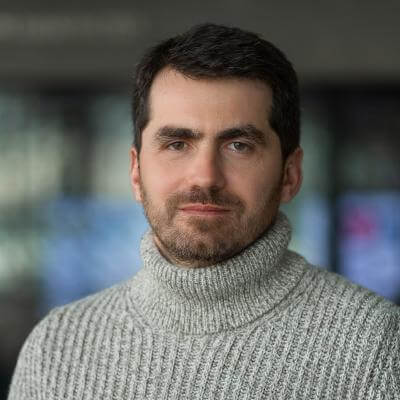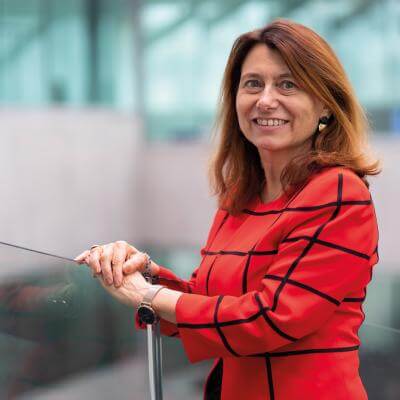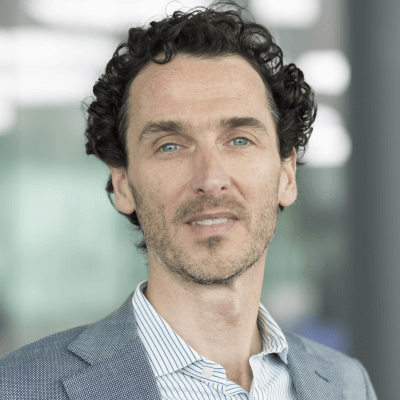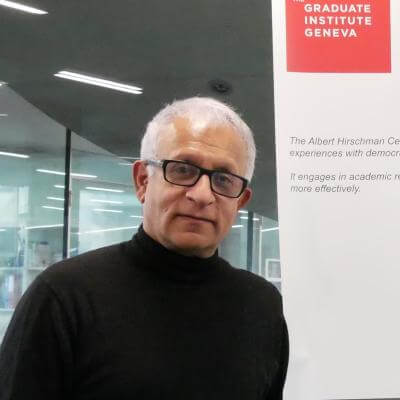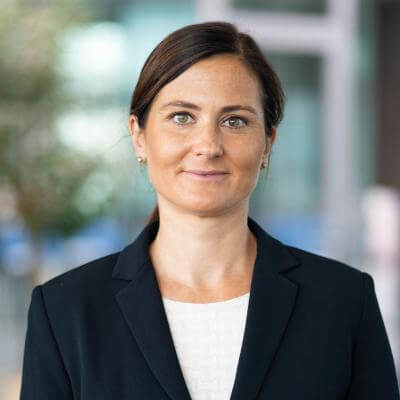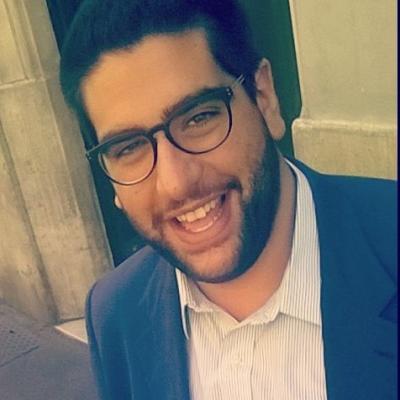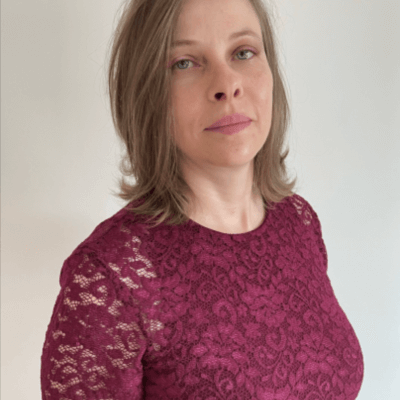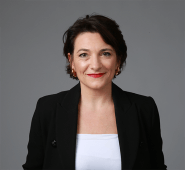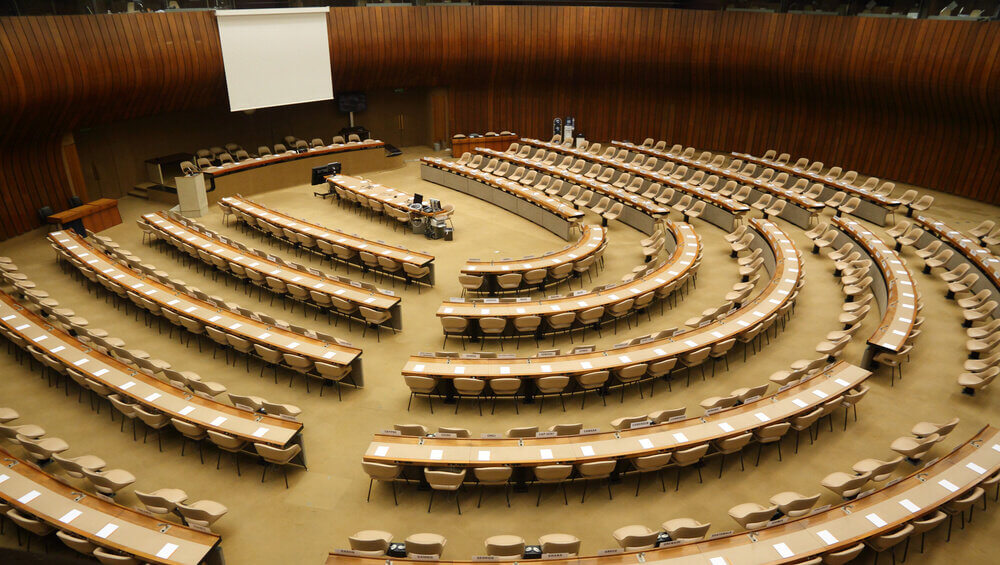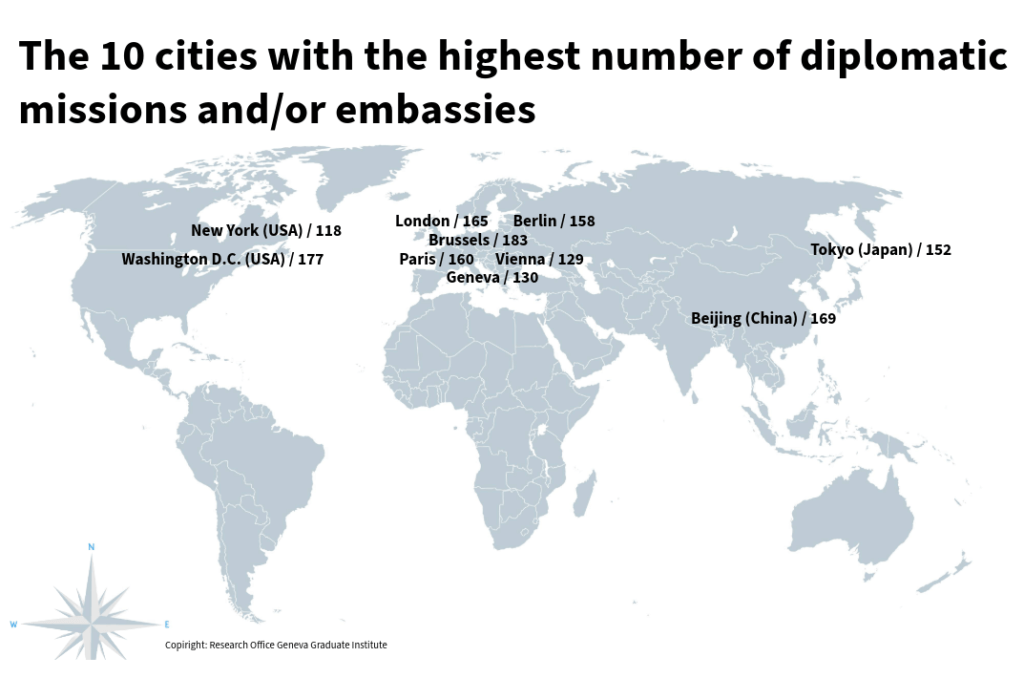Diplomacy in International Geneva: Beyond Business as Usual
https://doi.org/10.71609/iheid-vpq3-xc31Periods of crisis and radical uncertainty, like the one we are currently experiencing, could open up opportunities for profound transformation, provided we anticipate, prepare and mobilise. This projection should guide diplomacy in International Geneva for the years to come. Geneva has the opportunity to seize such moments of change for the reinvention of diplomacy.
This reinvention takes place, however, in an era in which a new mainstream of politics is profoundly sceptical about international cooperation, a trend aggravated by the Trump administration. Yet, global challenges are more intense than ever — from the old global risks of nuclear, chemical and biological weapons, unrestrained warfare, and pandemics to the acceleration of climate and environmental threats and of the social disruptions associated with inequalities, and finally to the new challenges of artificial intelligence, disinformation, cyberwars, and new weapons. Given the realities of a “multilateralism in crises” and the admittedly concerning outlook on the funding for international collaboration and solutions, one message is clear: diplomacy needs to go beyond business as usual.
Diplomats in Geneva can play an active part in reinventing the profession of diplomacy by taking and extending the practice outside the boundaries of statecraft. The “new” diplomacy goes beyond the reference to a profession and the activity of a foreign ministry. There is a significant difference between governments engaging in regulatory diplomacy and the diplomatic engagement necessary to solve contemporary global problems. The “new” diplomacy goes beyond the reference to a profession and the activity of a foreign ministry. It implies overcoming zero-sum games and “dealing with people in a sensitive and tactful way”, to use the Oxford Dictionary definition. The diplomacy that solves the complex global problems we currently face implies being able to identify, mobilise, and engage the relevant crosscutting multistakeholder alliances. In the words of Peter Maurer and Mohamed Mahmoud Mohamedou, diplomacy should be a “layered integrator of international interaction” across expertise, science, technology and citizen action, and ultimately constitute a “fluid and plural activity”.
In Geneva, this new brand of diplomacy can thrive on the already existing dense constellation of powerful government, business, finance, academic, scientific, and philanthropic actors concentrated in a small territory. It can leverage a variable geometry of partnerships with many different states, as well as with a variety of stakeholders from academia, science, industry, and civil society. It can draw on the growing diplomatic capacities of large companies and cities as well as on a unique ability to connect with elites, civil society representatives, and many difficult actors across the world — Geneva is after all the only city worldwide with second-degree relations to any armed actor anywhere in the world. The new diplomacy should combine political acumen, a granular understanding of context, funding, and capacities to get things done through dialogue and negotiation. It should also exhibit a strong moral compass grounded in the spirit of Geneva and its characteristic humanist projection.Geneva is after all the only city worldwide with second-degree relations to any armed actor anywhere in the world.
Such new diplomacy requires courage — diplomats indeed need to be courageous again in shaping responses to global problems in an era of many divisions. Diplomats in this new context cannot satisfy themselves with being good bureaucrats. They have to become real policy entrepreneurs. This feature of the new diplomacy might be particularly attractive for diplomatic establishments with an entrepreneurial foundation — such as in Qatar for instance — more at ease with integrative and adaptive process designs rather than logframes. But it does not mean that older diplomatic traditions cannot transform themselves.
What does the operationalisation of courage mean for a diplomat posted in Geneva? It means being ready for active listening and learning across and beyond all boundaries (organisational, specialisation, disciplinary, thematic, age, and generational). It means taking the risk to foster and nurture out-of-the-box ideas and innovative solutions even under burning daily pressure, giving room to exploration even when exploitation pressure is at its highest. It means being ready to face and overcome inevitable resistance, as the status quo and vested interest dynamics will likely be strong. It means authenticity and coherence, by aligning actions and decisions at all institutional and organisational levels. It means, finally, a degree of selflessness — courageous leadership is often servant leadership where the objective is not personal power but collective transformation.
The good news is that the new diplomacy is already well underway, from the experience of the 2023 Global Refugee Forum — a true multistakeholder process demonstrating the evolution of multilateral meetings — to the ICRC’s global initiative to galvanise political commitment to international humanitarian law, not forgetting the 2022 Black Sea grain Deal, a success of hybrid diplomacy born in Geneva. At regional and subnational levels, in cities or communities, there are dozens of examples of how people find ways to make progress through diplomacy and thus reduce violence and exclusion or mitigate climate impact.
Those wanting to seize the current “moment of change” for reinventing diplomacy in Geneva can draw on the instruments, networks, and expertise of one of the world’s foremost hubs of policy entrepreneurship. But they should really do it now, before institutions are overwhelmed by problems growing faster than our capacity to develop and deploy solutions. Geneva requires “all hands on deck” to pioneer a new diplomacy to prevent the worst and enable the best for humanity and the planet.
Electronic reference
Salles, Marie-Laure, and Achim Wennmann. “Diplomacy in International Geneva: Beyond Business as Usual.” Global Challenges, no. 17, May 2025. URL: https://globalchallenges.ch/issue/17/diplomacy-in-international-geneva-beyond-business-as-usual. DOI: https://doi.org/10.71609/iheid-vpq3-xc31.Dossier produced by the Research Office of the Geneva Graduate Institute.
TABLE | The 20 Countries with the Most Diplomatic Missions in the World in 2024
| Country | Total number of posts | Embassies | Consulates | Permanent Missions | Other representations |
|---|---|---|---|---|---|
| China | 274 | 173 | 91 | 8 | 2 |
| USA | 271 | 168 | 83 | 11 | 8 |
| Turkey | 252 | 145 | 93 | 12 | 2 |
| Japan | 251 | 152 | 66 | 10 | 23 |
| France | 249 | 158 | 72 | 18 | 1 |
| Russia | 230 | 143 | 74 | 10 | 3 |
| UK | 225 | 156 | 51 | 11 | 7 |
| Germany | 217 | 148 | 56 | 11 | 2 |
| Italy | 206 | 124 | 74 | 8 | 0 |
| Brazil | 205 | 135 | 58 | 12 | 2 |
| India | 201 | 142 | 50 | 5 | 4 |
| Spain | 190 | 114 | 65 | 10 | 1 |
| South Korea | 187 | 114 | 60 | 5 | 8 |
| Mexico | 161 | 80 | 71 | 8 | 2 |
| Canada | 157 | 98 | 38 | 11 | 10 |
| Argentina | 150 | 87 | 54 | 7 | 2 |
| Netherlands | 149 | 106 | 28 | 10 | 5 |
| Switzerland | 141 | 102 | 30 | 7 | 2 |
| Hungry | 140 | 87 | 43 | 7 | 3 |
| Poland | 135 | 91 | 33 | 9 | 2 |
All data taken from the Lowy Institute’s Global Diplomacy Index 2024.
BOX 1 | Diplomatic Realism
Diplomatic realism, often simply referred to as realism, is a theory of international relations that emphasises the competitive and conflictual nature of relations between States. Here are some key principles of diplomatic realism:
- International anarchy: The international system is anarchic, meaning that there is no higher authority to regulate relations between States. States must therefore rely on their own means to ensure their security and interests.
- State sovereignty: States are the main actors in international relations. They are sovereign and act rationally to maximise their security and power.
- Power and national Interests: States seek to maximise their relative power in relation to other states. Power can be measured in terms of capabilities — military, economic, technological, etc. National interests, often defined in terms of security, survival and prosperity, guide the actions of States.
- Balance of power: States form alliances and adopt strategies to maintain a balance of power, thus preventing a single State or coalition of States from becoming too powerful and threatening their security.
- Inevitable conflict: Realists consider conflict to be an inevitable feature of international relations. States are in constant competition for resources, territory and influence, which can lead to conflict and war.
- Pessimism about cooperation: Realists are sceptical about the possibility of lasting international cooperation. They see international institutions and agreements as tools that States use to promote their national interests rather than as means of genuine cooperation.
Diplomatic realism has been influenced by thinkers such as Thucydides, Machiavelli, Hobbes, and more recently by modern theorists such as Hans Morgenthau and Kenneth Waltz. This theory provides a framework for understanding the behaviour of States in a world where security and survival are of paramount concern. This realist theory is one of the analytical frameworks for international relations, in addition to liberalism and constructivism. They all have in common that they are rooted in Western philosophy.
Source: David Ho, “Les théories chinoises des relations internationales: une brève introduction”, La Revue d’histoire militaire, 4 April 2024.
BOX 2 | The New Diplomacy
“New diplomacy” refers to an evolution in traditional diplomatic practices, marked by the emergence of new actors, new means of communication and new issues. It is a concept that has emerged in response to the challenges and opportunities of the 21st century, marked by globalisation and the growing interdependence of states. It contrasts with traditional diplomacy, which is state-based, secret and bilateral, embodied by foreign ministries and embassies.
- Expansion of diplomatic actors: While traditional diplomacy was monopolised by states, new diplomacy involves multiple actors. It includes non-governmental organisations (NGOs), multinational companies, local authorities (cities, regions), international organisations (UN, WTO, EU…), citizens and social movements.
- Transformation of tools and channels: Digital tools have profoundly changed diplomatic practices. Public diplomacy and “twiplomacy” (diplomacy via X and other networks) enable direct communication between diplomats and the public.
- Broadening of themes: The new diplomacy addresses complex global issues such as climate change, global health, human rights, migration, digital governance and gender equality. For instance, the climate negotiations at COP26 involved not only states, but also NGOs, businesses, indigenous peoples and young activists such as Greta Thunberg.
- Collaborative and multi-level approaches: Diplomacy is no longer just vertical (between governments), but also horizontal, via cooperation networks between cities (e.g. C40 Cities), universities and civil society.
- More transparent and responsive diplomacy. Negotiations are increasingly subject to pressure from public opinion, the media and real-time communication dynamics. This makes diplomacy more visible, but also more vulnerable to polarisation or communication effects.
In summary, new diplomacy is a more holistic and integrated approach to international relations that recognises the complexity and interdependence of the modern world. It seeks to address global challenges through cooperation, engagement with a diversity of actors, and the use of new tools and technologies.
BOX 3 | Figures on International Geneva and Impact of US Cuts on United Nations Funding
- 43 international organisations in the Lake Geneva area (38 in Geneva, 46 in total in Switzerland)
- 183 States represented
- About 750 non-governmental organisations (NGOs)
- More than 4,000 visits per year of heads of state and government, ministers and other dignitaries
- In 2024, 36,460 people were employed in IOs, NGOs and permanent missions:
- 28,962 people employed in IOs
- 4,062 people employed in permanent missions
- 3,436 people employed in NGOs
- In 2024, the United States funded 22% of the UN regular budget, more than China (15.25%) and Japan (8.03%). But in 2025, it significantly reduced its financial contributions:
- Reduction of more than 80% for the UN regular budget, affecting more than 40 international organisations, including UNESCO and the World Health Organisation (WHO)
- Suspension of USD 377 million for UNFPA, the UN agency for reproductive health, impacting 48 programmes in crisis areas such as Gaza, Sudan and Ukraine
- Cuts of USD 160 million for the UN Food and Agriculture Organization (FAO), jeopardising global efforts to monitor avian influenza
- Estimated reduction of 30% for the International Organization for Migration (IOM), affecting more than 6,000 employees worldwide.
- To prevent staff layoffs due to the US funding freeze, the Canton of Geneva has allocated CHF 10 million and the City of Geneva CHF 2 million to support local NGOs.
Sources: République et canton de Genève, “Statistiques cantonales”. République et canton de Genève, Genève internationale, “Facts and Figures”. Confédération suisse, “Facts and Figures about International Geneva”. Better World Campaign, “Proposed FY25 Spending Bill for Foreign Operations Would Gut U.S. Global Standing”, 6 April 2025. United Nations Office at Geneva, “US Funding Cuts Confirmed, Ending Lifesaving Support for Women and Girls”, 27 February 2025. Susannah Savage and Michael Peel, “American Farmers Raise Alarm As US Cuts Funds for UN Bird Flu Fight”, Financial Times, 9 May 2025. International Organization for Migration, “Update on IOM Operations amid Budget Cuts ”, 18 March 2025. US Library of Congress, Congressional Research Service, United Nations Issues: US Funding to the UN System, by Luisa Blanchfield, IF10354, 9 April 2024. Frédéric Julliard, “Genève souffle le chaud et le froid sur les ONG”, Le Temps, 17 February 2025. Fanny Scuderi, “La ville de Genève alloue 2 millions de francs d’aide aux ONG”, 13 March 2025.
VIDEO | Former US Representative to the UN Amb. Sheba Crocker on Her Three Years in International Geneva
U.S. Mission Geneva
VIDEO | Diplomacy Today, with Stephan Klement, EU Diplomat and Special Adviser on Iran Nuclear Issue
Research Office, Geneva Graduate Institute
PODCAST | La diplomatie de la restitution des œuvres d’art avec Amb. Angelo Dan
Research Office, Geneva Graduate Institute
